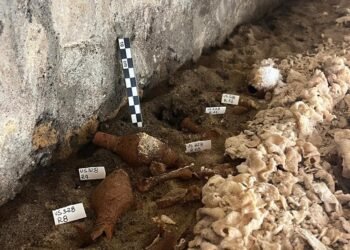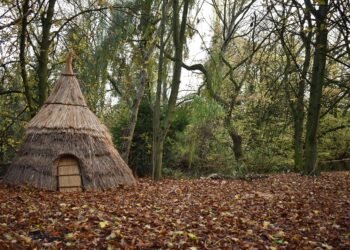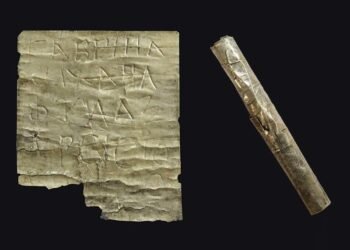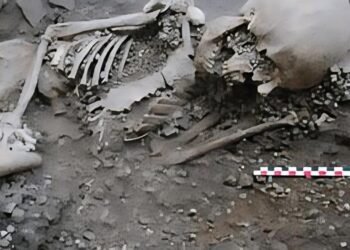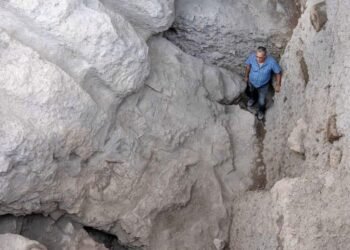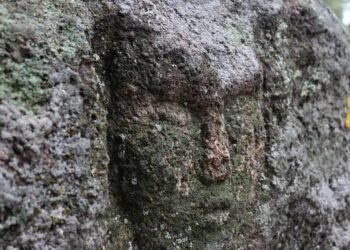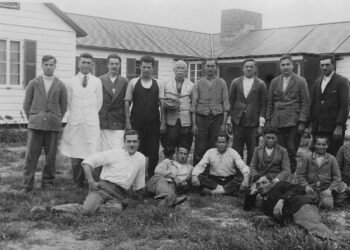A team of researchers, led by Francisco Estrada-Belli of Tulane University, uncovered an intact jade mask in the tomb of a Maya King at the little-known archaeological site of Chochkitam in northeastern Peten, Guatemala.

Chochkitam, initially reported in 1909 and later explored through ongoing studies, was revealed to be a royal city with roots tracing back to Preclassic times. Recent excavations, detailed in National Geographic, unveiled an interlocking jade mask buried with a Maya King.
The breakthrough occurred during the Holmul Archaeological Project’s (HAP) field season at Chochkitam. A LiDAR survey in 2021, conducted by the University of Alabama, Department of Anthropology, exposed evidence of grave robbers’ tunnels into the central structure of a royal pyramid. Despite the looters’ intrusion, they missed a crucial area within the pyramid’s inner chamber.
The overlooked space contained a treasure trove of archaeological significance – a human skull, carved bones with hieroglyphs, a stone box resembling a coffin, ceramic artifacts, and funerary offerings, including a pot, oyster shells, and various pieces of jade that intricately fit together to form the discovered jade mask. The bone carvings revealed the name “Itzam Kokaj Bahlam,” believed to be the Maya king ruling Chochkitam around CE 350.
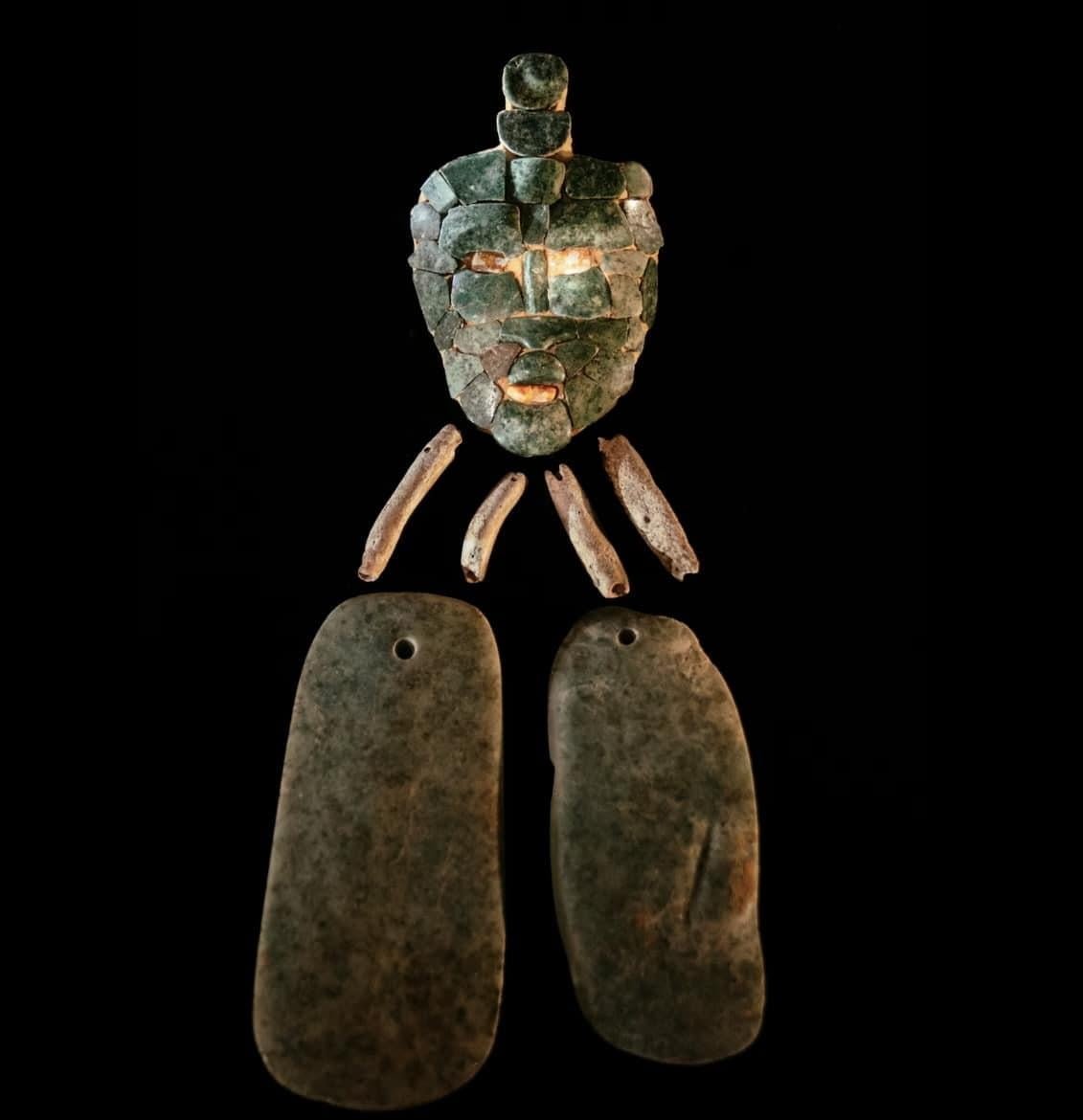
Francisco Estrada-Belli, a professor at Tulane University told National Geographic: “Everything suggests to me that this was a Maya king who was part of a network of Maya royalty in the sphere of influence of Tikal and Teotihuacán.” The interconnectedness of Maya royalty across different regions highlights the complexity of their political and religious affiliations during this era.
The discovery challenges previous interpretations of Maya history and adds weight to the growing theory that Maya royals may have been influenced by more powerful Mesoamerican dynasties. Estrada-Belli expressed, “The mask is one more nail in the coffin” of old interpretations, underscoring the transformative nature of this find.
Alexandre Tokovinine, a University of Alabama epigraphist, played a crucial role in decoding hieroglyphs on the carved bones. One bone carving depicted the buried Maya king holding the head of a deity, mirroring the representation on the assembled jade mask. This alignment further reinforces the religious significance of the jade mask, believed to manifest the Storm God worshiped by the Mayans.
Excavations at Chochkitam have been ongoing since 2019, under Estrada-Belli’s direction, aiming to document and preserve the Maya past while training archaeologists from Guatemala and around the world.



